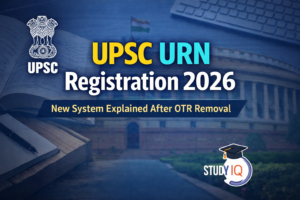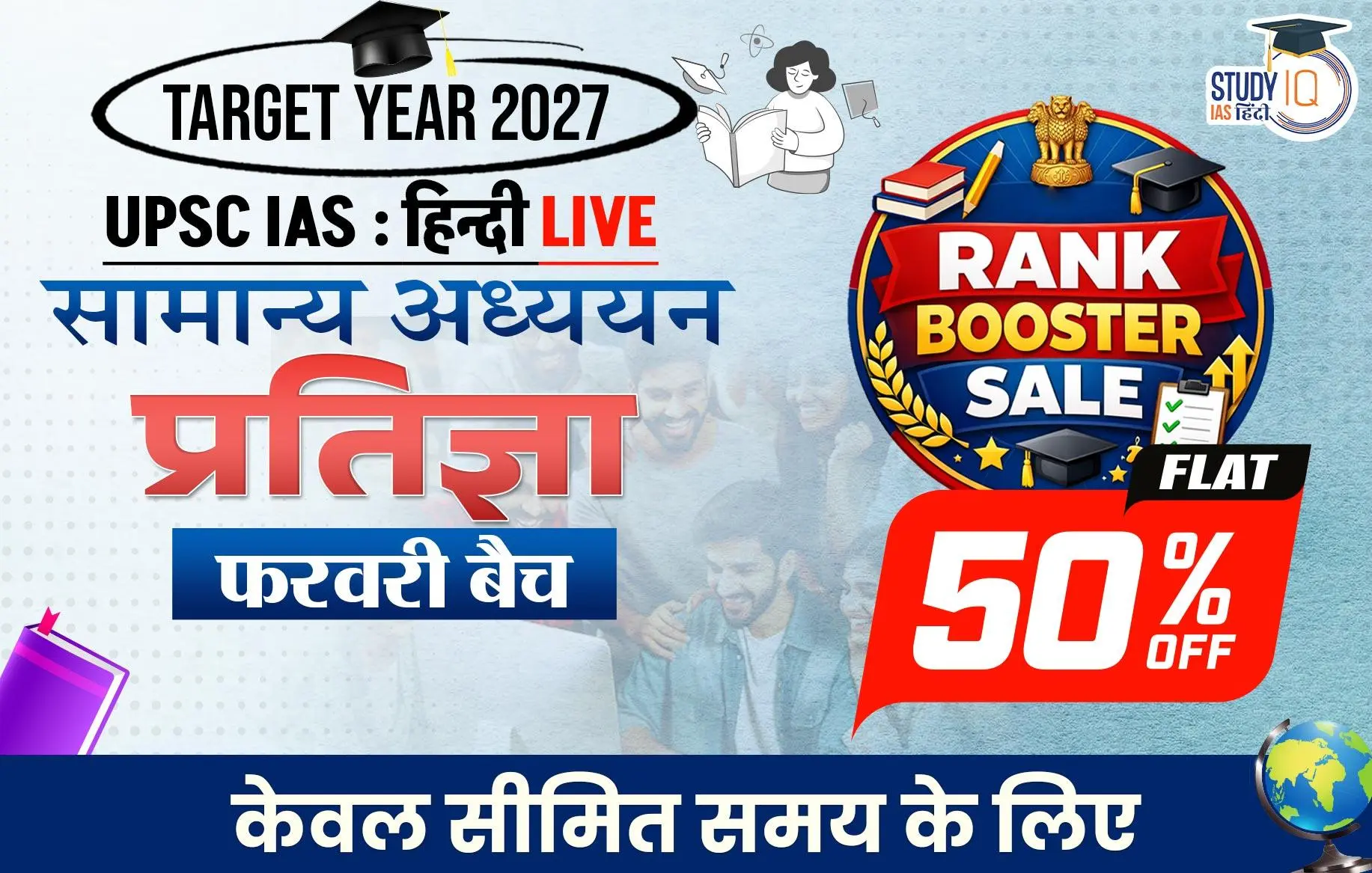Q10. Rajesh is a Group A officer with nine years of service. He is posted as Administrative Officer in an Oil Public Sector undertaking. As an Administrative Officer he is responsible for managing and coordinating various administrative tasks to ensure smooth functioning of the office. He also manages office supplies, equipment etc.
Rajesh is now a sufficient senior and is expecting his next promotion in JAG (Junior Administrative Grade) in the next one or two years. He knows that promotion is based on examination of ACRs/Performance Appraisal of last few years (5 years or so) of an officer by a DPC (Departmental Promotion Committee) and an officer lacking requisite grading of ACRs may not be found fit for promotion. Consequences of losing promotion may entail financial and reputational loss and set-back for career progression. Though he also puts his best efforts in official discharge of his duties, yet he is unsure of assessment by his superior officer. He is now putting extra efforts so that he gets a thumping report at the end of the financial year.
As Administrative Officer, Rajesh is regularly interacting with his immediate boss, who is his reporting officer for writing his ACR. One day he calls Rajesh and wants him to buy computer-related stationery on priority from a particular vendor. Rajesh instructs his office to initiate action for procuring these items, During the day, the dealing Assistant brings an estimate of Rupees Thirty Five Lakhs covering all stationery items from the same vendor. It is noticed that as per delegated financial powers, as provided in the GFR (General Financial Rules) as applicable in that Organisation, expenditure for office items exceeding Rupees Thirty Lakhs requires sanction of the next higher authority (boss in the present case). Rajesh knows that immediate superior would expect all these purchases to be done at his level and may not appreciate such lack of initiative on his part. During discussions with the office, he learns that common practice of splitting of expenditure (where a large order is divided into a series of smaller ones) is followed to avoid obtaining sanction from higher authority. This practice is against the rules and may come to the adverse notice of Audit.
Rajesh is perturbed. He is unsure of taking decisions in the matter.
(a) What are the options available with Rajesh in the above situation ?
(b) What are the ethical issues involved in this case?
(c) Which would be the most appropriate option for Rajesh and why?
| Approach: Introduce the case, highlighting Rajesh’s ethical dilemma between career aspirations and adhering to procurement rules amid pressure from his superior. Structure the response in three sections: options available to Rajesh, ethical issues involved, and the most appropriate option with justification. Use ethical frameworks like deontology, utilitarianism and Rawlsian justice. Conclude with a statement emphasizing the importance of integrity in public service for maintaining trust and accountability. |
Rajesh, an IAS officer in an Oil PSU, faces a critical ethical dilemma in procurement, balancing career promotion prospects with adherence to General Financial Rules (GFR). His superior’s directive to purchase stationery worth Rs. 35 lakhs from a specific vendor exceeds his delegated powers, prompting suggestions to split orders—a rule violation risking audit scrutiny.
Stakeholders and their interests
(a) Options available to Rajesh
Option 1: Comply with superior’s directive and split the order
- Merits:
- Career pragmatism: Enhances Rajesh’s ACR by showing loyalty, potentially securing promotion.
- E.g.: Aligning with superior’s expectations may ensure short-term career gains.
- Operational efficiency: Expedites procurement, maintaining office functionality.
- E.g.: Quick stationery supply supports PSU operations.
- Career pragmatism: Enhances Rajesh’s ACR by showing loyalty, potentially securing promotion.
- Demerits:
- Lack of integrity: Violates GFR, compromising Rajesh’s ethical duty to uphold rules.
- E.g.: Similar to Coal Scam’s rule-bending, risking systemic corruption.
- Transparency deficit: Splitting orders evades scrutiny, undermining fair procurement.
- E.g.: Risks audit penalties, as seen in CAG’s 2019 PSU procurement reports.
- Erosion of public interest: Misuses public funds, breaching accountability to taxpayers.
- E.g.: Favoritism in vendor selection harms equitable resource allocation.
- Lack of integrity: Violates GFR, compromising Rajesh’s ethical duty to uphold rules.
Option 2: Seek higher authority sanction without splitting
- Merits:
- Integrity: Adheres to GFR, upholding ethical duty and rule of law.
- E.g.: Aligns with the Supreme Court’s emphasis on transparent public procurement.
- Transparency: Ensures proper oversight by escalating to higher authority, fostering fairness.
- E.g.: Similar to e-tendering systems like Maharashtra’s, ensuring open processes.
- Accountability: Protects public interest by preventing misuse of funds, maintaining trust.
- E.g.: Avoids audit risks, as seen in compliant PSU procurements.
- Integrity: Adheres to GFR, upholding ethical duty and rule of law.
- Demerits:
- Risk to loyalty perception: May strain relations with the superior, impacting ACR and promotion.
- E.g.: Superiors may view escalation as lack of initiative, as in hierarchical PSU cultures.
- Operational delay: Seeking higher approval may slow down procurement, affecting office efficiency.
- E.g.: Delays in stationery supply could disrupt administrative tasks.
- Risk to loyalty perception: May strain relations with the superior, impacting ACR and promotion.
Option 3: Report the pressure and rule-bending suggestion
- Merits:
- Moral courage: Demonstrates integrity by confronting unethical practices, upholding public interest.
- E.g.: Similar to Ashok Khemka’s whistleblowing on land deals, earning ethical respect.
- Systemic accountability: Exposes rule violations, fostering long-term transparency in the PSU.
- E.g.: Vigilance reports, like in the 2018 ONGC scam, led to reforms.
- Fairness: Challenges favoritism, ensuring equitable vendor selection and justice.
- E.g.: Aligns with CVC’s anti-corruption guidelines for PSUs.
- Moral courage: Demonstrates integrity by confronting unethical practices, upholding public interest.
- Demerits:
- Career risk: Reporting superiors may lead to retaliation, jeopardising ACR and promotion prospects.
- E.g.: Whistleblowers like Satyendra Dubey faced career setbacks for exposing corruption.
- Workplace tension: Creates conflict with colleagues, disrupting team harmony and loyalty.
- E.g.: Reporting may alienate staff accustomed to rule-bending practices.
- Career risk: Reporting superiors may lead to retaliation, jeopardising ACR and promotion prospects.
(b) Ethical Issues involved
- Integrity vs. career ambition: Rajesh’s duty to uphold GFR conflicts with promotion aspirations, risking ethical compromise.
- E.g.: Bending rules for ACR mirrors 2G Spectrum’s ethical lapses.
- Transparency vs. favoritism: Selecting a specific vendor without bidding undermines fair processes.
- E.g.: Violates GFR’s competitive bidding norms, fostering corruption.
- Accountability vs. rule violation: Splitting orders evades oversight, breaching public trust.
- E.g.: Risks audit scrutiny, as in CAG’s PSU financial irregularity findings.
- Public interest vs. personal gain: Prioritizing superior’s directive over rules harms taxpayers.
- E.g.: Misuse of funds akin to Commonwealth Games scam.
- Fairness vs. organizational pressure: Normalizing unethical practices undermines equitable governance.
- E.g.: Reflects systemic issues in PSU procurement cultures.
(c) Most Appropriate Course of Action
Option 2: Seek higher authority sanction without splitting is the most appropriate.
- Upholds integrity: Adheres to GFR, fulfilling Rajesh’s deontological duty to follow rules.
- E.g.: Aligns with CVC’s emphasis on rule-bound PSU governance.
- Promotes transparency: Ensures oversight by higher authority, fostering fair procurement.
- E.g.: Similar to e-procurement systems ensuring open bidding.
- Safeguards public interest: Protects public funds, maintaining accountability to stakeholders.
- E.g.: Avoids audit risks, as seen in compliant ONGC procurements.
- Balances career and ethics: Minimizes confrontation while upholding rules, preserving long-term reputation.
- E.g.: Officers like T.N. Seshan maintained integrity without direct conflict, earning respect.
Justification
- Deontological Ethics: Upholds Rajesh’s duty to follow GFR, prioritizing rules over personal gain.
- E.g.: Aligns with CVC’s 2020 guidelines for transparent PSU procurement.
- Rawlsian Justice: Ensures fair, equitable processes, protecting taxpayers from favoritism.
- E.g.: Mirrors Maharashtra’s 2021 e-tendering for just bidding.
- Utilitarian Ethics: Maximizes societal good by safeguarding funds, ensuring public trust.
- E.g.: Like ONGC’s 2019 compliant procurements, avoiding audit risks.
- Virtue Ethics: Reflects integrity and courage, enhancing Rajesh’s ethical reputation.
- E.g.: Similar to T.N. Seshan’s principled electoral reforms.
- Principlism: Promotes beneficence (public welfare) and non-maleficence (no corruption harm).
- E.g.: Aligns with 2017 GFR amendments for transparent approvals.
Rajesh’s dilemma highlights the need for ethical resilience in public service. As Sardar Patel said, “Public servants are the steel frame of India,” emphasizing integrity and accountability. The course of action chosen ensures rule compliance, fostering transparency and fairness while safeguarding Rajesh’s ethical standing and public interest.

 UPSC Previous Year Question Papers, Down...
UPSC Previous Year Question Papers, Down...
 UPSC URN Registration 2026: New System E...
UPSC URN Registration 2026: New System E...
 UPSC Prelims Exam Date 2026: Official Sc...
UPSC Prelims Exam Date 2026: Official Sc...

























